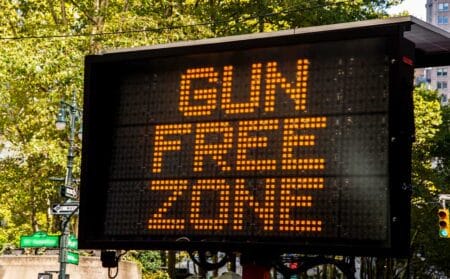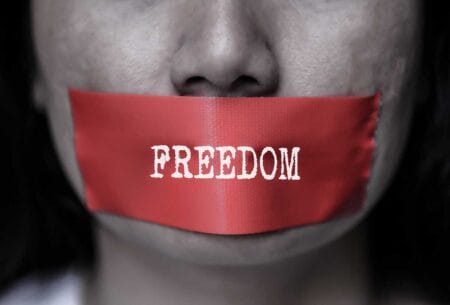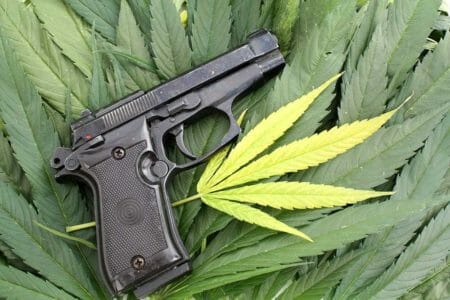Opinion
On his first day in office, President-elect Donald Trump promises, he will pardon at least some of the 1,500 or so people who have been charged with crimes in connection with the Jan. 6 riot at the U.S. Capitol.
He notes that most of those defendants were not violent and that they faced a lot of pressure to plead guilty, as about 1,000 have done so far.
Trump’s most vociferous critics are apt to view any pardons in these cases as an outrageous and self-interested attempt to excuse the behavior of “insurrectionists” who sought to overturn the results of the 2020 presidential election. But even though Trump himself is largely to blame for the riot, which was inspired by his unfounded insistence that then-President-elect Joe Biden had stolen the election, [we shall see about that] he raises some valid points about prosecutorial power, which can lead to unjust results that might be remedied by the prudent use of presidential clemency.
As of Nov. 6, the Justice Department reports, about 590 people had been charged with “assaulting, resisting, or impeding law enforcement agents or officers or obstructing those officers” during the riot. They included 169 defendants “charged with using a deadly or dangerous weapon or causing serious bodily injury to an officer.”
More than 300 defendants had pleaded guilty to felonies, while 661 had pleaded guilty “only to misdemeanors.” Defendants who pleaded not guilty, by contrast, typically have been convicted of felonies.
Prosecutors had a bunch of potential charges to choose from, including misdemeanors such as demonstrating inside the Capitol, “disorderly or disruptive conduct,” and entering or remaining in a restricted building without authorization. The sentences in such cases ranged from probation to short jail terms. Even defendants who received relatively light sentences may have grounds to complain that the charges they faced were not deployed consistently.
According to a recent report from the Justice Department’s Office of the Inspector General, four FBI informants “entered the Capitol during the riot,” while 13 “entered the restricted area around the Capitol.” [See “FBI had 26 informants at Jan. 6 Capitol riots — and most were involved, bombshell DOJ report confirms “.]
None of those informants has faced prosecution.
Although the D.C. U.S. Attorney’s Office claims that is consistent with its policy of “generally” not charging protesters who did not enter the Capitol itself, that does not explain why the four informants who admittedly entered the building got off scot-free.
The potential felony charges in the Capitol riot cases, which carry much more severe penalties, included violent crimes such as assaulting police officers. But they also included offenses that were not necessarily violent, such as obstructing “an official proceeding,” which is punishable by up to 20 years in prison under 18 USC 1512(c)(2).
Given the possibility of such charges, Trump said on “Meet the Press” this month, defendants who pleaded guilty “had no choice.” Because prosecutors can severely penalize defendants who insist on a trial, he added, the criminal justice system is “very corrupt” and “very nasty.”
The Section 1512 charge, which figures in a quarter of the Jan. 6 cases, illustrates that point. Although the Supreme Court ruled last June that the offense must involve attempts to conceal evidence, meaning it does not cover the conduct of the Capitol rioters, that seemingly important decision is expected to have little impact on the outcomes of these cases.
The Justice Department says “there are zero cases where a defendant was charged only for violating” Section 1512. And even in the 26 cases where defendants pleaded guilty to that charge alone, the agreements explicitly allow prosecutors to pursue other charges now that they can no longer rely on this statute.
When you combine that sort of discretion with the puzzling practice of imposing sentences after trial based on allegations that the prosecution failed to prove beyond a reasonable doubt, it is not hard to see why some Jan. 6 defendants may have received excessively severe penalties.
If Trump draws appropriate distinctions and uses his clemency powers carefully — a big “if” — he can mitigate those injustices.
About Jacob Sullum
Jacob Sullum is a senior editor at Reason magazine. Follow him on Twitter: @JacobSullum. During two decades in journalism, he has relentlessly skewered authoritarians of the left and the right, making the case for shrinking the realm of politics and expanding the realm of individual choice. Jacobs’ work appears here at AmmoLand News through a license with Creators Syndicate.








If you say, tongue in cheek, that the claim of Joe Biden stealing the election is unfounded, then okay. But if you believe that refusal to investigate numerous claims of impropriety equates to there being no impropriety, then your reasoning is dismal. Obviously, people with eyes closed won’t see anything, but that means nothing about what could be seen if one were to look. Reason magazine, you say? If it has been duly shown that the claims of a stolen election are truly unfounded, I’d love to know when and where a proper investigation was conducted. Or otherwise, how you… Read more »
Each and every January 6 martyr should be fully pardoned during Trump’s first week in office. Even if they had charges of violence against law enforcement, they have served enough time in prison for those convictions. The entire prosecution process was a Democrat effort to prevent Trump from running again by tarring his reputation. The J6 martyrs were pawns in a political game. If Biden can pardon or commute thousands of dopers and violent felons, Trump can pardon some political prisoners so they can resume their lives.
They are STILL jailing people for J6! Three people just this week. A grandparent couple who never entered the Capitol and were merely part of a prayer group on the grounds! This is OUTRAGEOUS and UNACCEPTABLE!!!
I believe that President Trump should pardon the Jan 6 patriots on his first day back.
We need something like the Truth and Reconciliation Commission I South Africa in the early 1990’s. Give government agents and lackeys a chance to come clean and confess their crimes and then go after the leadership of the corrupt agencies. The January 6 Committee needs to be brought before that same commission and they need to tell the American People how and why they destroyed and or ignored evidence. Unfortunately Congress cannot be trusted with this task. Trump needs to put together a team of top notch investigators to get to the truth. NO more Warren Commissions. Get to the… Read more »
fbi people should be prosecuted